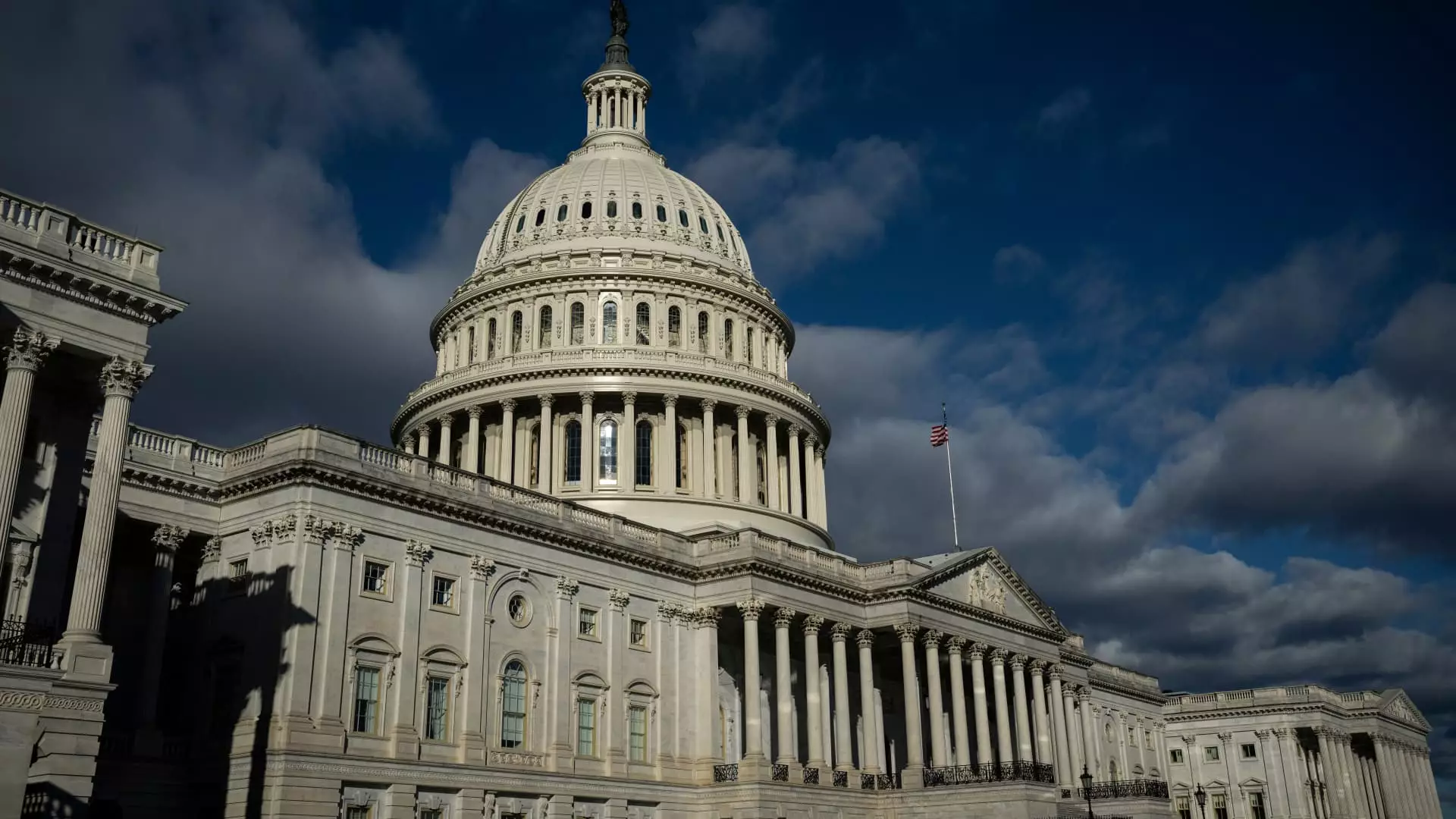In a surprising turn of events, the House of Representatives has approved a $78 billion tax package. The bill includes a significant expansion of the child tax credit, a measure that aims to provide relief to struggling families. The package was passed with a majority of 357-70, highlighting its broad bipartisan support. However, despite this overwhelming majority, the bill is not guaranteed a smooth path forward.
While the tax package enjoys support from both sides of the aisle, some key objections have arisen. Liberal Democrats have voiced their opposition to the business tax breaks included in the bill. On the other hand, right-wing Republicans have taken issue with the child tax credit policy. Additionally, GOP members from New York have complained that the bill fails to expand the $10,000 cap on federal deductions for state and local taxes.
These objections, although coming from different corners, risk derailing the progress of the bill. It now faces its biggest hurdle: the Senate.
The tax package has now moved to the Democratic-led Senate, where it will require a minimum of 60 votes to pass. However, the future of the bill remains uncertain. One of the skeptics in the Senate is Chuck Grassley, a Republican Senator from Iowa. Grassley, a member of the Finance Committee, openly expressed his concerns about the bill, citing potential gains for President Joe Biden in an election year as a reason for his hesitations.
Senate Majority Leader Chuck Schumer, a Democrat from New York, has not given any specifics regarding the timing of a vote on the tax bill or whether there will be any amendments. Schumer simply stated that he supports the bill and is working with Senator Ron Wyden, the Chairman of the Finance Committee, to determine the best way forward.
The tax package primarily focuses on expanding refundable child tax credits. The aim is to alleviate the financial burden faced by struggling families, especially those with multiple children. The bill proposes lifting the $1,600 refundable cap on the credit and adjusting it for inflation. Additionally, it seeks to revive some expired parts of the 2017 Republican tax cuts for businesses, including research and experimental expensing, as well as small-business expensing.
The Republican Perspective
House Ways and Means Committee Chairman Jason Smith, a Republican from Missouri, praised the tax bill, emphasizing its positive implications for both growth and job creation. Smith believes that the passage of this legislation will lead to lower taxes, increased opportunities, and enhanced financial security for parents across the country.
However, Senate Minority Leader Mitch McConnell has deferred to Senator Mike Crapo of Idaho to lead the Senate GOP response to the tax bill. Crapo has expressed his desire for the bill to go through the committee, allowing for revisions, and for a floor process that enables all members to file their amendments. He specifically mentioned the need to eliminate the provision that allows taxpayers to use income from a previous year to claim larger child tax credits. This change aims to preserve the work requirement and address a potential loophole within the bill.
As the tax package faces its next hurdle in the Senate, the path forward remains uncertain. With objections and concerns from both Democrats and Republicans, the bill’s fate hangs in the balance. Whether it will undergo revisions, amendments, or potential roadblocks is still to be determined.
The passage of the tax package in the House marks a significant step forward, but its journey is far from over. As lawmakers engage in discussions, negotiations, and potential amendments, one thing is clear: the fate of this controversial tax bill will have a far-reaching impact on struggling families, businesses, and the overall economy.

Leave a Reply